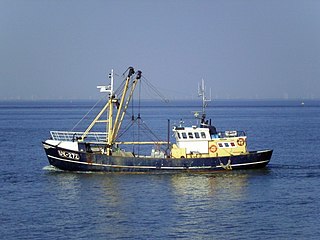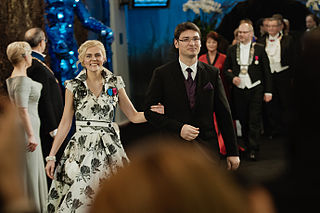
The European Court of Justice (ECJ), officially just the Court of Justice, is the supreme court of the European Union in matters of European Union law. As a part of the Court of Justice of the European Union it is tasked with interpreting EU law and ensuring its equal application across all EU member states.

GNU Classpath is a free software implementation of the standard class library for the Java programming language. Most classes from J2SE 1.4 and 5.0 are implemented. Classpath can thus be used to run Java-based applications. GNU Classpath is a part of the GNU Project. It was originally developed in parallel with libgcj due to license incompatibilities, but later the two projects merged.
In European Union law, direct effect is the principle that Union law may, if appropriately framed, confer rights on individuals which the courts of member states of the European Union are bound to recognise and enforce.

R v Secretary of State for Transport was a judicial review case taken against the United Kingdom government by a company of Spanish fishermen who claimed that the United Kingdom had breached European Union law by requiring ships to have a majority of British owners if they were to be registered in the UK. The case produced a number of significant judgments on British constitutional law, and was the first time that courts held that they had power to restrain the application of an Act of Parliament pending trial and ultimately to disapply that Act when it was found to be contrary to EU law.
Free Java implementations are software projects that implement Oracle's Java technologies and are distributed under free software licences, thus making them free software. Sun released most of its Java source code as free software in May 2007, so it can now almost be considered a free Java implementation.
A Java compiler is a compiler for the programming language Java. The most common form of output from a Java compiler is Java class files containing platform-neutral Java bytecode, but there are also compilers that gives optimized native machine code for a particular hardware/operating system combination.
A golden share is a nominal share which is able to outvote all other shares in certain specified circumstances, often held by a government organization, in a government company undergoing the process of privatization and transformation into a stock-company.

The Brussels Regime is a set of rules regulating which courts have jurisdiction in legal disputes of a civil or commercial nature between individuals resident in different member states of the European Union (EU) and the European Free Trade Association (EFTA). It has detailed rules assigning jurisdiction for the dispute to be heard and governs the recognition and enforcement of foreign judgments.

The Service Regulation, officially the Council Regulation (EC) No. 1393/2007 on the service in the Member States of judicial and extrajudicial documents in civil or commercial matters, is a European Union regulation in the field of judicial cooperation. It allows service of judicial documents from one member state to another without recourse to consular and diplomatic channels.
ParadisEO is a white-box object-oriented framework dedicated to the flexible design of metaheuristics. It uses EO, a template-based, ANSI-C++ compliant computation library. ParadisEO is portable across both Windows system and sequential platforms. ParadisEO is distributed under the CeCill license and can be used under several environments.

Julia Laffranque, is an Estonian jurist, judge, legal scientist, professor of European law Since 3 November 2015 Vice-President of the Second Section of the European Court of Human Rights. Since 4 June 2018 also a member of the Scientific Committee of the European Union Fundamental Rights Agency. She has been a judge of the European Court of Human Rights since 2011, earlier a justice at the Supreme Court of Estonia and professor of European law at the University of Tartu.
Van Duyn v Home Office (1974) C-41/74 was a case of the European Court of Justice concerning the free movement of workers between member states.
The Data Retention Directive, more formally "Directive 2006/24/EC of the European Parliament and of the Council of 15 March 2006 on the retention of data generated or processed in connection with the provision of publicly available electronic communications services or of public communications networks and amending Directive 2002/58/EC" was a Directive issued by the European Union and related to telecommunications data retention. According to the directive, member states had to store citizens' telecommunications data for a minimum of 6 months and at most 24 months. Under the directive the police and security agencies would have been able to request access to details such as IP address and time of use of every email, phone call and text message sent or received. A permission to access the information could be granted only by a court. On 8 April 2014, the Court of Justice of the European Union declared the Directive invalid in response to a case brought by Digital Rights Ireland against the Irish authorities and others because blanket data collection violated the EU Charter of Fundamental Rights, in particular the right of privacy.
A preliminary ruling is a decision of the European Court of Justice (ECJ) on the interpretation of European Union law, given in response to a request from a court or tribunal of a European Union Member State. A preliminary ruling is a final determinations of EU law, with no scope for appeal. The ECJ hands down its decision to the referring court, which is then obliged to implement the ruling.
Nordsee Deutsche Hochseefischerei GmbH v Reederei Mond Hochseefischerei Nordstern AG & Co KG is a case referred to the European Court of Justice (ECJ) by a German arbitrator by virtue of Article 267 of the Treaty on the Functioning of the European Union. This article gives the "Courts or Tribunals" of Member States the power to refer matters involving the interpretation or application of European Union law to the ECJ. It was held in this case that the ECJ could not rule on questions referred to it by an arbitrator because an arbitral body is not a court or tribunal of a Member State as defined in Article 234.
The relationship between the European Court of Justice (ECJ) and European Court of Human Rights (ECtHR) is an issue in European Union law and human rights law. The ECJ rules on European Union (EU) law while the ECtHR rules on the European Convention on Human Rights (ECHR), which covers the 47 member states of the Council of Europe. Cases cannot be brought in the ECtHR against the European Union, but the Court has ruled that states cannot escape their human rights obligations by saying that they were implementing EU law.
The MOEA Framework is an open-source evolutionary computation library for Java that specializes in multi-objective optimization. It supports a variety of multiobjective evolutionary algorithms (MOEAs), including genetic algorithms, genetic programming, grammatical evolution, differential evolution, and particle swarm optimization. As a result, it has been used to conduct numerous comparative studies to assess the efficiency, reliability, and controllability of state-of-the-art MOEAs.
Internationale Handelsgesellschaft mbH v Einfuhr- und Vorratsstelle für Getreide und Futtermittel (1970) Case 11/70, also known as "Solange I", is an EU law case and German constitutional law case concerning the conflict of law between a national legal system and the laws of the European Union.






